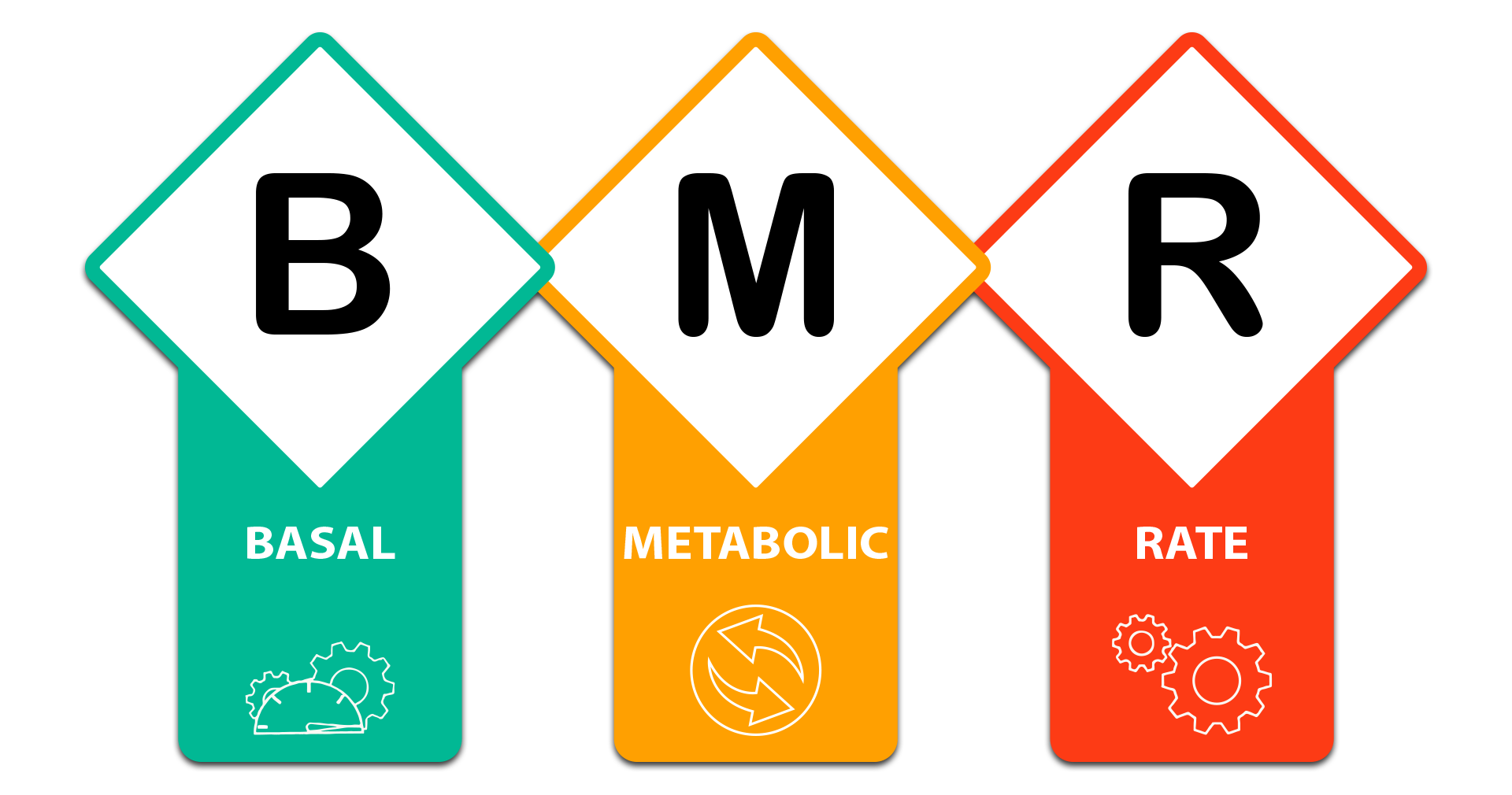BMR Calculator – Calculate Your Basal Metabolic Rate Easily
Calculate your Basal Metabolic Rate to determine how many calories your body burns at rest
Overview
The BMR Calculator analyzes your Basic Metabolism Rate, which is the amount of energy your body consumes at rest. It’s a crucial part of your total daily energy expenditure (TDEE). Unlike other calculators or equations, this tool accounts for key factors to give the most accurate BMR possible.
From personal experience, having an accurate estimate of your BMR helps guide better health decisions. Understanding your body’s energy needs at rest ensures you can tailor your diet and activity more effectively, optimizing your overall wellness.
What is BMR?
BMR is the amount of energy, measured in calories, that your body requires to keep essential functions going while you’re at rest like breathing, circulating blood, and cell production.
It’s a fundamental component of your total daily energy expenditure (TDEE), which also includes calories burned through activity and digestion.
BMR Formula
There are several formulas used to calculate BMR, with the Harris-Benedict and Mifflin-St Jeor equations being the most popular. The Mifflin-St Jeor formula is often preferred for its accuracy.Here's an easy sketch about the way it works:
- • For men: BMR is calculated by multiplying weight (kg) by height (cm) minus age (years) plus 5.
- • For women: BMR is calculated as 10 times weight (kg) + 6.25 times height (cm) - 5 times age (years) minus 161.
These formulas allow the BMR Calculator to estimate your resting energy needs based on your personal data.

Factors Affecting Your BMR
Body Size & Composition
Larger bodies and more muscle mass increase BMR
Age
BMR typically decreases by 1-2% per decade after age 20
Gender
Men generally have higher BMR due to more muscle mass
Genetics
Inherited traits can affect metabolic rate by 5-10%
Hormones
Thyroid, insulin, and cortisol levels impact metabolism
Environmental Temperature
Extreme temperatures can increase energy expenditure
BMR vs TDEE: Understanding the Difference
- • Calories burned at complete rest
- • Includes only essential body functions
- • Measured in controlled laboratory conditions
- • Represents 60-75% of total daily calories
- • Used as baseline for calorie calculations
- • BMR + physical activity calories
- • Includes exercise and daily movement
- • Accounts for thermic effect of food
- • Represents total calories burned per day
- • Used for weight management planning
BMR Activity Level Multipliers
Sedentary
×1.2
Little/no exercise
Light
×1.375
Light exercise 1-3 days/week
Moderate
×1.55
Moderate exercise 3-5 days/week
Very Active
×1.725
Hard exercise 6-7 days/week
Extreme
×1.9
Very hard exercise, physical job
What You Need to Know About BMR
Understanding your BMR provides insight into your metabolism and helps in planning weight loss, maintenance, or gain strategies. However, remember that BMR is just one piece of the puzzle; physical activity and lifestyle significantly influence your total calorie requirements.
Background of BMR Formulas
BMR formulas have evolved over time to become more precise. Early formulas like Harris-Benedict were developed in the early 20th century, but with advances in research, the Mifflin-St Jeor formula gained prominence due to better accuracy, especially for different body compositions.
Determinants of BMR and Accuracy of BMR Calculators
Your BMR depends on several factors, including your age, gender, weight, height, and body composition.While most BMR calculators give a good estimate, they may not account for every individual’s unique metabolism.
For example, muscle mass burns more calories than fat, so athletes typically have a higher BMR than sedentary individuals.
The Impact of Gender
Men usually have a higher BMR than women, largely due to higher muscle mass and different hormonal profiles. This is why you’ll find specific calculators such as the BMR Calculator for Men and BMR Calculator for Women tailored to reflect these physiological differences.
The Impact of Age
As you age, your BMR generally decreases.This decrease is mostly due to losing muscle mass and hormonal balance.It becomes more important to monitor your BMR as you grow older to adjust your calorie intake accordingly.
The Impact of Athletic Status
Athletes or highly active individuals have a higher BMR because muscle tissue requires more energy to maintain than fat. Therefore, their BMR Calculator results may be higher compared to those with less physical activity.
The Impact of Weight Loss and Gain
Losing weight usually reduces your BMR since your body requires fewer calories to maintain a smaller mass. Conversely, gaining weight, particularly muscle mass, can increase your BMR. Tracking these changes with a BMR Calculator helps keep your nutrition aligned with your goals.
BMR vs BMI
While BMR measures calorie needs at rest, Body Mass Index (BMI) assesses whether you have a healthy body weight for your height. Both tools are useful but serve different purposes in health and fitness monitoring.
How is BMR Calculated?
Calculating BMR involves inputting your weight, height, age, and gender into a formula or BMR Calculator tool. Many online calculators automate this process, making it simple and accessible. The calculated value represents calories burned at rest daily.
How to Use the BMR Calculator?
Using a BMR Calculator is straightforward. Enter your personal details accurately, including your weight in kilograms or pounds, height in centimeters or inches, age, and gender. The calculator will process this information and provide your basal metabolic rate, guiding your diet and fitness plans.
Limitations of the BMR Calculator
While helpful, BMR calculators have limitations. They don’t perfectly account for muscle-to-fat ratios, genetic variations, or metabolic disorders. For precise needs, professional assessments like indirect calorimetry are recommended.
What is the Range of Normal Human BMRs?
Normal BMR ranges varies widely according to age, sex, and the composition of the body.Typically, adult men have BMR values between 1600-1800 calories per day, while adult women range between 1400-1600 calories per day.
Why is This BMR Calculator Better?
The Digital Calculator best BMR Calculators incorporate updated formulas, support unit conversions, and often include activity multipliers for more accurate daily calorie estimates. They are user-friendly and designed for both men and women, making metabolism tracking easier than ever.
Sources & References
- • World Health Organization (WHO). Healthy Diet.
- • Centers for Disease Control and Prevention (CDC). Healthy Weight.
- • Mayo Clinic. "Basal Metabolic Rate: What It Means for Your Weight.
These reputable organizations provide evidence-based guidance on metabolism, calorie needs, and healthy weight management, reinforcing the advice shared here and enhancing trustworthiness.
BMR Calculator Frequently Asked Questions
The Harris-Benedict equation used in this BMR calculator is accurate within ±10% for most healthy adults. However, individual variations in muscle mass, genetics, and metabolic efficiency can affect actual BMR. For precise measurements, consider indirect calorimetry testing at a medical facility.
BMR typically decreases by 1-2% per decade after age 20 due to several factors: loss of muscle mass (sarcopenia), decreased physical activity, hormonal changes, and reduced organ function efficiency. Regular strength training and maintaining active lifestyle can help minimize age-related BMR decline.
Eat fewer calories than your total daily energy needs.A daily calorie deficit of about 500 calories is typically enough to accomplish safe weight loss. Consult a professional for personalized advice.
BMR varies by age, gender, and body type. Focus on a healthy lifestyle rather than a specific number.
1200 calories is low and might not support basic functions if combined with activity. Avoid eating below your BMR without medical advice.
Higher BMR usually means more muscle and faster metabolism. Lower BMR can be due to age or less muscle. BMR is just one health factor.
Yes! Build lean muscle through strength training (muscle burns more calories than fat), eat protein-rich foods (higher thermic effect), stay hydrated, get adequate sleep, and consider high-intensity interval training (HIIT). These strategies can boost your metabolic rate by 5-15% over time.
Related Health Calculators
Calculate your Body Mass Index to assess weight status
Calculate BMIFind your ideal weight range based on height and body frame
Calculate Ideal WeightEstimate body fat percentage using body measurements
Calculate Body FatAccuracy Disclaimer
Please keep in mind that BMR Calculators use population-averaged formulas.They may not fully account for individual differences such as genetics, health conditions, or unique body compositions. For personalized advice, consult a healthcare professional.
